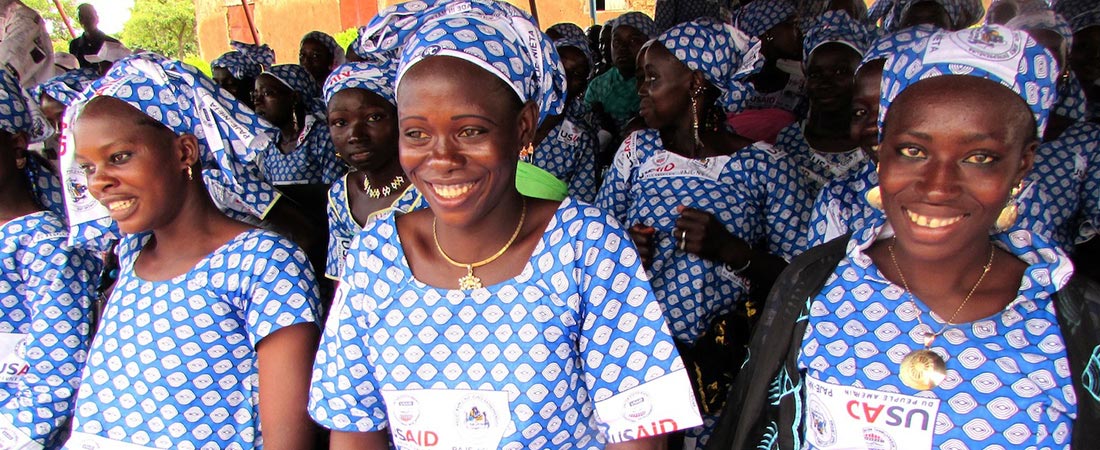Youth Program Celebrates Success in Mali

In rural Mali, thousands of young people have gained the skills, knowledge, and tools to improve their lives and bolster their communities thanks to the USAID-funded Mali Out-of-School Youth project (PAJE-Nièta), implemented by EDC.
On Thursday, EDC marked the successful conclusion of PAJE-Nièta during a special ceremony in Bamako. As part of the ceremony, the project officially transferred EDC-developed basic education materials to the Government of Mali, ensuring that they can be used to inform other basic education and youth entrepreneurship development programming in the future.
“Our experience over the last five years has demonstrated that the Mali Out-of-School Youth model truly offers uneducated youth the possibility of a new beginning,” said EDC’s Adwoa Atta-Krah, deputy chief of party for PAJE-Nièta. “We are excited and hopeful that the model will further benefit other communities across Mali and in other countries in Africa."
Atta-Krah was joined by high-ranking Malian officials at the ceremony, including Barthelemy Togo, minister of education, and Erin Pacific, USAID Mali’s deputy director. EDC implemented PAJE-Nièta in collaboration with Catholic Relief Services, Swisscontact, Association Jeunesse Action, and Association Malienne pour la Survie au Sahel.
Since 2010, PAJE-Nièta has provided opportunities for basic education, entrepreneurship skills training, and civic engagement to out-of-school youth in the Koulikoro, Sikasso, Kayes, and Timbuktu regions of Mali, where access to educational and economic opportunities are limited.
Over the past five years, 10,951 rural young people completed PAJE-Nièta’s technical training in an income-generating activity of their choice. And more than 8,500 have successfully launched their own microenterprises in agriculture or service-related activities, such as market gardening, poultry raising, soap making, carpentry, and hairdressing.
“Today, our beneficiaries can read and write in their mother tongue, use a cell phone to enhance learning, and manage their microenterprises. They are aware of their rights and responsibilities and the importance of civic engagement,” says Atta-Krah. “We are all proud of the life-changing opportunities the project was able to provide to thousands of youth, who otherwise would have been left out by formal education.”
Government officials in Mali are now mobilizing resources to implement the program’s model in other regions of the country.
“Today’s transfer of PAJE-Nièta’s modules to the ministry is a crucial step in ensuring the sustainability of the project’s activities and accomplishments,” said USAID’s Erin Pacific. “I sincerely hope that the government and its technical services will use these materials and resources to empower and equip as many young Malians as possible.”